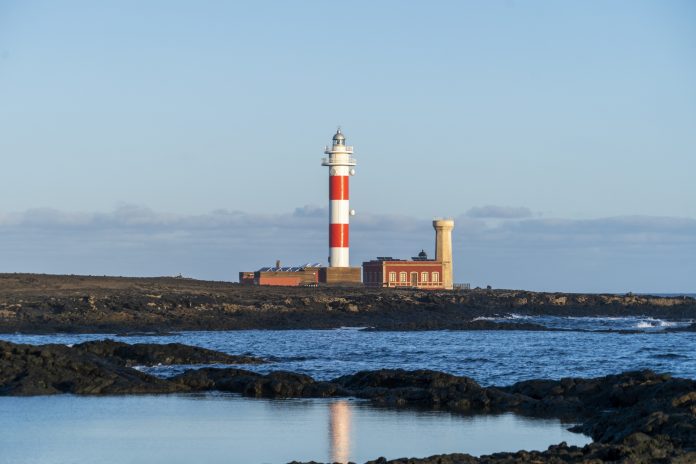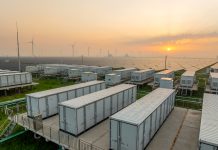Former Global Director & SciTech Sustainability Council Advisor from Frost & Sullivan, Dr. Cecilia E. Van Cauwenberghe, discusses Sweden’s dedication to marine conservation and the EU’s Blue Deal in the context of advancing sustainable water management
Sweden’s pioneering leadership in marine conservation and unwavering support for the European Union’s (EU) Blue Deal are beacons of inspiration. They reflect a deep-seated commitment to environmental sustainability and international cooperation. This commitment is particularly evident in Sweden’s ambitious efforts to reach a legally binding global agreement to reduce plastic pollution by 2040.
Such an initiative is crucial and transformative, as reducing plastic pollution is the cornerstone of transitioning towards a circular economy, where resources are more efficiently used. Sweden’s belief in a global agreement is a testament to its vision of establishing a universal framework, fostering international collaboration, and standardizing regulations, thereby significantly mitigating marine pollution.
The concept of a circular economy seeks to redefine growth by focusing on positive society-wide benefits, which is crucial to understanding the importance of pollution reduction. It involves gradually decoupling economic activity from consuming finite resources and designing waste out of the system. Underpinned by a shift to renewable energy, this model not only reduces pollution but also enhances economic, natural, and social capital. (Stahel, W. R. (2016). The circular economy. Nature, 531(7595), 435-438).
The international marine environment
Sweden’s contribution to the international marine environment work is not just noteworthy but a testament to the power of global collaboration. It aligns with the United Nations’ objectives to protect 30% of the Earth’s surface by 2030. Through various initiatives and funding, Sweden and the EU have been at the forefront of promoting marine biodiversity and sustainable practices in marine areas. This commitment is not just reflected in extensive research and conservation projects but in the spirit of collaboration with global partners, which is the key to our collective success (Rockström, J., & Gaffney, O. (2023). Resilience and sustainable development: Building adaptive capacity in a world of transformations. Ambio, 52(1), 215-222).
The EU’s Blue Deal
The EU’s Blue Deal seeks to revolutionize water management across Europe. It aims to ensure that water management practices contribute to ecosystem resilience, improve water quality, and promote sustainable use of water resources. This policy framework integrates water management with broader environmental goals, emphasizing conservation and sustainable use as critical components of European environmental policy (European Commission. (2022). Blue Deal policy framework. Brussels: European Commission).
European decision-makers are tackling water-related challenges through innovative governance models and technologies emphasizing efficiency, sustainability, and inclusivity. The strategies include:
- Enhancing the resilience of Europe’s water systems to climate change.
- Promoting the reuse and recycling of water.
- Improving the health of aquatic ecosystems.
The Blue Deal serves as a roadmap for achieving these objectives, ensuring that water management practices help mitigate the impact of climate change and foster a sustainable future (Driessen, P. P., Dieperink, C., & van Laerhoven, F. (2023). Governance strategies for water management in the context of sustainability and climate change. Journal of Environmental Management, 301, 113912).
Closing remarks: Sustainable water management
In a world increasingly impacted by climate change and water scarcity, the EU, spearheaded by proactive Member States like Sweden, is poised to lead global water management solutions. The Blue Deal not only offers a roadmap to sustainable water use but also positions the EU as a leading player in international efforts to address water management in the context of broader environmental sustainability (Nilsson, M., & Persson, Å. (2024). The EU’s role in global water governance. Global Environmental Change, 67, 102290).
Sweden’s proactive approach to marine conservation and support for the EU’s Blue Deal highlights its readiness to address global challenges collaboratively. This commitment is a beacon of hope for a sustainable future in which water management is an integral part of the global response to environmental crises.
References
- Stahel, W. R. (2016). The circular economy. Nature, 531(7595), 435-438.
- Rockström, J., & Gaffney, O. (2023). Resilience and sustainable development: Building adaptive capacity in a world of transformations. Ambio, 52(1), 215-222.
- European Commission. (2022). Blue Deal policy framework. Brussels: European Commission.
- Driessen, P. P., Dieperink, C., & van Laerhoven, F. (2023). Governance strategies for water management in the context of sustainability and climate change. Journal of Environmental Management, 301, 113912.
- Nilsson, M., & Persson, Å. (2024). The European Union’s role in global water governance. Global Environmental Change, 67, 102290.











